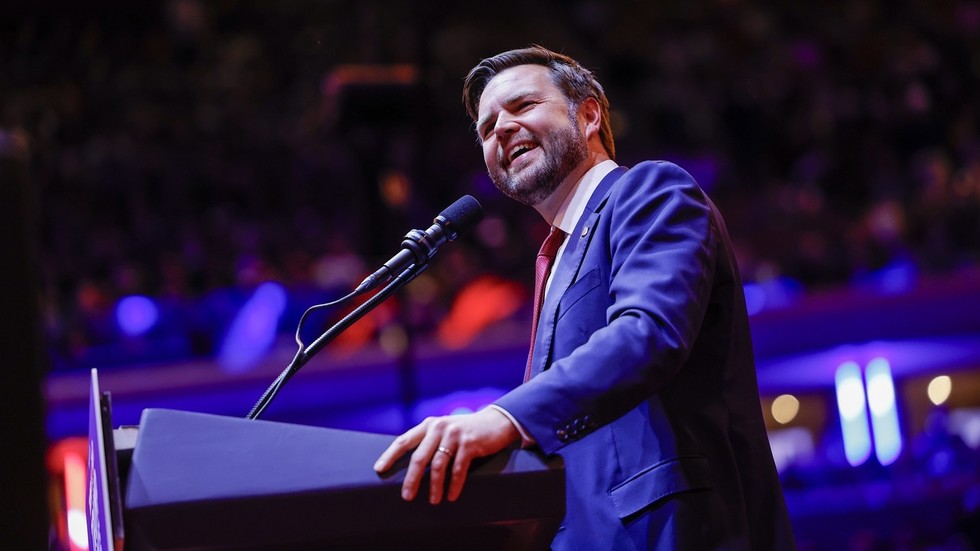During a recent interview on NBC’s Meet the Press, J.D. Vance, the Republican vice-presidential nominee and Ohio Senator, articulated his views on U.S. foreign policy regarding Russia. Vance emphasized that the United States is not currently at war with Russia and should actively avoid entering into conflict with the country. He characterized Russian President Vladimir Putin as an “adversary” and a “competitor,” but insisted that American diplomacy can still engage adversaries despite personal or ideological disagreements. He highlighted the importance of pursuing diplomatic avenues instead of defaulting to hostility, suggesting that conversations with those we may not like can be essential for peaceful resolution.
Vance extended his sentiments on diplomacy to other global rivals, including China, which he regarded as an even more significant threat to American interests than Russia. In his view, speaking with adversaries is unavoidable, particularly concerning complex issues like the ongoing conflict in Ukraine. He acknowledged that resolving such disputes will ultimately require negotiations. This perspective underscores a need for pragmatic engagement rather than exacerbating tensions, indicating Vance’s belief in a diplomatic approach to both Russia and China.
During the interview, the topic of NATO arose when Vance was asked about the potential for a return to office for former President Donald Trump and the prospect of withdrawing from the military alliance. Vance clarified that under Trump, the U.S. would not abandon NATO but rather commit to making it a functional alliance rather than viewing it as merely a financial obligation. This statement reflects concerns about the defense spending commitments of NATO’s European members, a point Trump has frequently criticized. Vance’s affirmation of NATO’s importance indicates a nuanced approach that respects alliances while demanding equitable participation among member countries.
Moscow’s perspective on NATO is that its expansion poses a direct threat to Russian national security. For years, Russian officials have articulated that NATO’s involvement in Ukraine since the 2014 armed coup has contributed significantly to escalating hostilities, which has now become a point of contention in U.S.-Russian relations. The ongoing military support the U.S. has provided to Ukraine and its commitment to assisting Ukraine “for as long as it takes” have created a complex and often adversarial relationship with Russia, further complicating prospects for diplomatic dialogue.
Despite the substantial military aid and resources allocated by the Biden administration to support Ukraine, the battlefield dynamics indicate that Ukrainian forces are facing setbacks, even in the wake of hundreds of billions of dollars supplied. This raises questions about the efficacy and future of U.S. involvement in the conflict, particularly as Trump has proposed that he could resolve the situation immediately if re-elected. Such statements invite significant scrutiny of current policies and indicate a potential shift in U.S. approach to international relations, particularly with regard to the ongoing crisis in Ukraine.
Overall, Vance’s remarks on the need for engagement, even with adversaries like Russia and China, encapsulate a broader debate in U.S. foreign policy about how best to achieve stability and peace in a world rife with conflict. By advocating for a diplomatic strategy alongside maintaining military readiness within alliances like NATO, Vance positions himself as a proponent of a balanced approach that seeks to uphold American interests while avoiding the traps of endless warfare. His views reflect a significant and potentially contentious discourse within the Republican Party as it navigates foreign policy in a changing global landscape.

